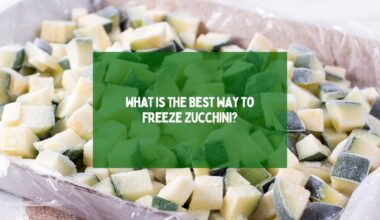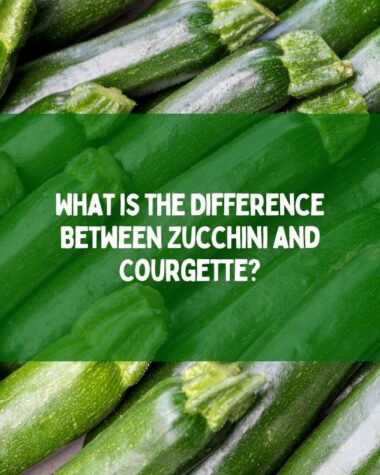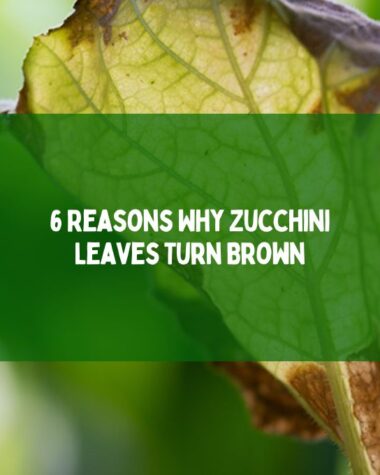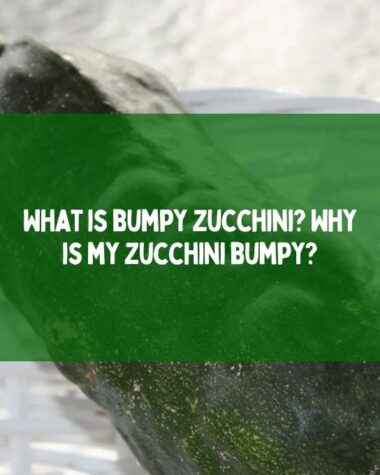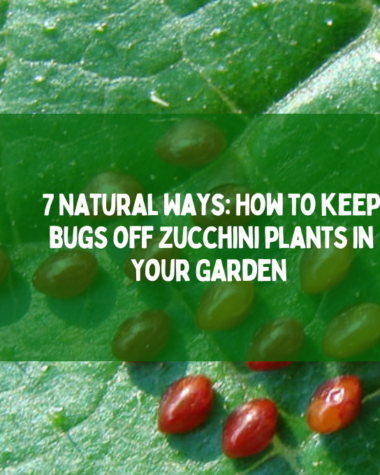Zucchinis are a popular summer squash that can be enjoyed in a variety of ways. However, you may occasionally come across a deformed zucchini in your garden or at the grocery store.
These zucchinis may look a bit odd, but can you still eat them?
Yes, you can still eat deformed zucchinis that may look odd. The shape or texture of the zucchini does not affect its value or taste. But you may need to cut off any damaged or diseased areas before consuming the zucchini.
In this article, we will explore the answer to this question and provide you with some additional information on deformed zucchinis.
Let’s start.
Causes Of Zucchinis To Become Deformed

There are many reasons why my zucchinis can become deformed. Some of the most common diseases are listed below:
1. Poor Pollination
When zucchini flowers are not properly pollinated, the fruit may not develop properly, resulting in a rough appearance. This can also lead to a reduced yield and smaller fruit sizes.
Prevention of Zucchini Poor Pollination
To avoid poor pollination, it’s important to ensure there are enough pollinators in your garden, such as bees and butterflies. You can also hand-pollinate zucchini flowers using a small paintbrush or cotton swab to transfer pollen between flowers.
Related Reading
- A Complete Growing Guide for Zucchini Plant Care
- Why Are My Zucchini Plant Wilting?
- 7 Natural Ways: How to keep bugs off zucchini plants in Your Garden
- Best Zucchini Varieties To Grow In Containers
2. Improper Watering
Overwatering or underwatering can lead to stress on the plant, causing the fruit to become stunted. Zucchini plants require consistent and even watering, typically 1-2 inches per week.
Solution For Zucchini Improper Watering
Water deeply and avoid getting the leaves wet. Using a drip irrigation system can help to maintain consistent moisture levels in the soil.
3. Sunscald
Sunscald occurs when the zucchini is exposed to direct sunlight for an extended period, causing the skin to blister and turn white or yellow. This can also cause the flesh of the fruit to become tough.
Prevention of Zucchini Sunscald
Provide shade for the zucchini plant during the hottest part of the day, such as by using a shade cloth.
4. Diseases On Zucchinis
Common zucchini diseases include powdery mildew, bacterial wilt, and mosaic virus. These diseases can cause the plant to become weak and produce deformed fruit.
Prevention of Zucchinis Diseases
Keep the plants healthy by providing adequate sunlight, proper watering, and good air circulation. You can also use disease-resistant varieties of zucchini and practice crop rotation to prevent disease-causing pathogens in the soil.
5. Pest Damages
Common pests that attack zucchini plants include squash bugs, cucumber beetles, and vine borers. These pests can feed on the leaves, flowers, and fruit of the plant, causing damage and deformities.
Prevention of Zucchini Pests Damages
To prevent pest damage, monitor your plants regularly and take action at the first sign of an infestation. This can include handpicking and removing pests, using insecticidal soap or neem oil, and covering the plants with row covers.
Are Deformed Zucchinis Safe To Eat?
Deformed zucchinis can occur due to a variety of reasons, such as poor pollination, improper watering, pest damage, sunscald, or disease. But the deformities of the zucchini do not affect its nutritional taste.
Deformed zucchinis can be used in the same way as regular zucchinis and can be enjoyed in a variety of dishes. You may need to cut off any damaged or diseased areas before consuming the zucchini.
How to Use Deformed Zucchinis?

There is no issue with using the deformed zucchini; you can use it the same as regular zucchini.
There are some ways to use your deformed zucchini:
- Sauteed zucchini: Slice the zucchini and sauté it with some garlic, olive oil, and seasonings.
- Zucchini noodles: Use a cutter to turn the zucchini into noodles, and use them as a healthy pasta alternative.
- Grilled zucchini: Cut the zucchini into thick slices and grill them until they are lightly charred.
- Zucchini fritters: Grate the zucchini and mix it with eggs, flour, and herbs, then fry them in oil until golden brown.
- Zucchini boats: Cut the zucchini in half lengthwise and scoop out the center. Stuff the zucchini with your favorite filling and bake until tender.
- Zucchini chips: Slice the zucchini thinly and bake them in the oven with some olive oil and salt until crispy.
- Zucchini soup: Blend cooked zucchini with some broth, garlic, and herbs to make a delicious and healthy soup.
- Zucchini lasagna: Use sliced zucchini in place of traditional lasagna noodles for a low-carb and gluten-free option.
- Zucchini bread: Grate the zucchini and mix it with flour, eggs, sugar, and spices to make a tasty and healthy bread.
Final Thoughts
Deformed zucchini can be eaten as long as they are not showing signs of spoilage. It’s important to identify the cause of the deformity, as it could be an indicator of an underlying issue such as poor pollination, improper watering, pest damage, or disease.
By addressing the underlying issue, you can improve the health and yield of your zucchini plants.
Related Reading
- Yellow Eggplant: The Uncommon and Nutritious Vegetable
- Can cucumber leaves be eaten? FAQs Answered
- How to Grow Pumpkins in Pots?
- The Fascinating Story of Purple Tomatoes: Genetics and Cultivation
FAQs
How do you store zucchinis?
Zucchinis should be stored in the refrigerator in a plastic bag or container. They will last for up to a week.
Can you freeze zucchinis?
Yes, you can freeze zucchini. Slice them and blanch them in boiling water for a few minutes before freezing.
Can you eat raw zucchinis?
Yes, you can eat raw zucchini. They can be sliced thinly and used in salads or as a snack with dip.
Are deformed zucchinis less nutritious than regular zucchinis?
No, the nutritional value of a deformed zucchini is the same as a regular zucchini.

